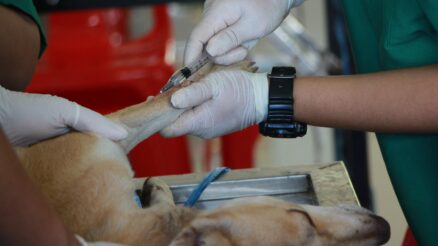At some moment in their lifetime, your dog may require surgery. Even if the notion of your beloved dog needing surgery is upsetting, knowing the facts about this aspect of pet health care may reduce your anxiety. There are two types of surgical procedures for dogs: elective and emergency. No pet owner likes the idea of their precious family member undergoing surgery, but expert treatment eliminates any reason for concern.
Types Of Canine Surgical Procedures
The veterinary surgical techniques described here for you to get more information are the most common.
Dental Extraction
The degeneration and damage of an animal’s teeth can pose a major risk to its health. It may be necessary to remove infected teeth to preserve the health of the surrounding teeth and tissue. This common animal surgery is performed under general anesthesia to ensure your pet’s comfort.
To prevent tooth extractions, brush your pet’s teeth once each week or offer them dental treats. Most animal hospitals have a dental suite where routine cleanings, minor procedures, and dental surgery are performed.
Internal Surgery
As every pet owner knows, it’s not uncommon for canines and felines to consume something they shouldn’t. When a hairy pet ingests a foreign object, it is sometimes essential to undergo an interior operation to remove it. This common emergency procedure also removes bladder stones and cancerous tumors. Visit this page to learn more about internal surgery.
Neutering
This is the most common surgical operation performed on animals, and it is strongly advised as a preventative. Desexing is helpful for your household and your pet. De-sexing an animal, for example, decreases its probability of developing reproductive cancers and enhances its average lifespan.
In general, a neutered animal will display less fear and hostility and be less likely to bite or engage in fights. The outcome is a friend who is more comfortable and loving with you and your family. Learn more about the advantages of neutering or spaying or neutering your pet, as well as how to prepare for the procedure and care for them afterward.
Skin Surgeries
Numerous animals must have surgery to remove skin cancers and other lumps. To ensure patient safety, biopsies may be conducted after removing benign and malignant tumors in exotic pets. Additional skin surgeries include the excision of abscesses and suturing of wounds.
Injuries
Despite our greatest efforts to keep them safe, our animals frequently sustain injuries. To prevent infection, bites and open wounds sustained during a fight may demand surgery. Broken bones may require resetting or the insertion of metal plates to restore their strength. Immediately contact a veterinary clinic to prevent more blood loss, illness, or harm to your pet.
In conclusion
Your dog is a vital component of your family, and you should be aware that surgery is common in some breeds and may be required for your pet’s comfort and happiness. Contact your veterinarian if you need to discuss surgical options for your dog or schedule an operation. Veterinarians are highly educated and empathetic dog lovers anxious to reduce the worry and dread associated with dog surgery for you and your pet.

